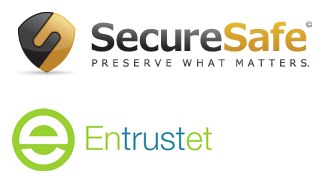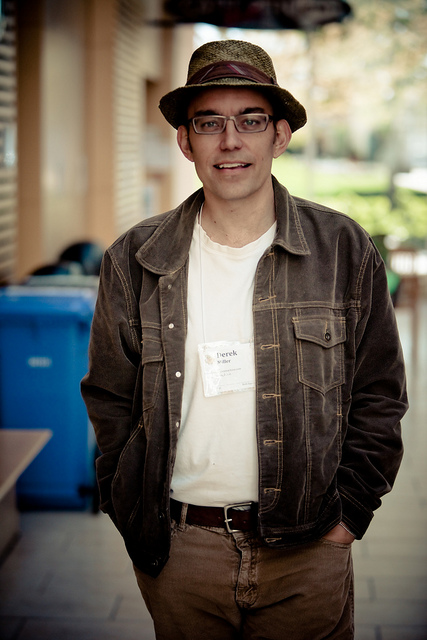Study on Facebook Mourning
A recent post in TechVibes alerted me to a new academic study of Facebook and mourning.
“Two researchers at the University of Toronto—Profeessor Rhonda McEwen and Librarian Kathleen Scheaffer—have completed a study on the methods and consequences of mourning on Facebook.”
According to the TechVibes article, the authors make 3 recommendations:
- Offer “digital estate options” to determine who can control the profile postmortem.
- Lock a dead person’s account, and automatically delete it after 50 years.
- Enable Facebook friends the same access to the page, respecting the privacy filters. Disable direct messaging to prevent shenanigans. Remove the profile from search. Enable loved ones to create memorial pages.
Interestingly, I’ve advocated for years that users need more options to control what happens to their Facebook accounts after death. It’s good to see this coming from other voices too.
The abstract of “Virtual Mourning and Memory Construction on Facebook” is below. Get the full study here.
This article investigates the online information practices of persons grieving and mourning via Facebook. It examines how, or whether, these practices and Facebook’s terms of use policies have implications for the bereaved and/or the memory of the deceased. To explore these questions, we compared traditional publicly recorded asynchronous modes of grieving (i.e., obituaries) with Facebook’s asynchronous features (i.e., pages, photos, messages, profiles, comments). Additionally, by applying observational techniques to Facebook memorial pages and Facebook profiles, conducting a survey, and interviewing respondents as a follow-up to the survey, we examined the benefits of and issues surrounding online information sharing via Facebook when coping with the loss of another. We found that the immediacy of publishing comments, messages, wall posts, and photos provides Facebook mourners with a quick outlet for their emotions and a means of timely group support; however, these actions directly affect the online curation of the deceased’s self and memory and also create an environment of competition among mourners. The aforementioned benefits and complications of using Facebook during bereavement are shaped by the policies outlined by the social media platform.
Family’s Court Order for Facebook
Recently, I spoke with a Jessica Hopper at NBC Rock Center who was investigating digital legacy. Her story features the Stassen’s, a family who is seeking some answers behind their son’s suicide and are turning to Facebook to find them.
The family has obtained a court order to gain access to their son’s Facebook account on grounds that they are heirs to his estate, and as such, they are entitled to all of his assets, including digital digital, and the contents of his Facebook account. Aside from the publicly posted items, they are curious about what private information might reveal about his death.
His parents speak candidly about it in this video:
Visit msnbc.com for breaking news, world news, and news about the economy
In the supporting article, Peter Swire, a law professor at Ohio State University, commented, “What happens if a 21-year-old had a safe deposit box at the bank, the answer is the safe deposit box belongs to his estate and whoever controls the estate gets to open the box.”
“When somebody dies, the person who is responsible for taking care of the individual’s asset is supposed to be complying with what the individual wanted and protecting the individual,” said Naomi Cahn, a George Washington University law professor. “Because so many people have not thought about this, we don’t know what the person actually wanted…we can all imagine what’s in internet accounts. There may certainly be cases where the person who died would not have wanted anyone to get anywhere near the person’s account.”
Read the rest of the article here.
Where do you stand on this? Do you believe that the heirs to the estate should have full access to digital accounts? Or do you believe that the online services have a responsibility to protect their users’ privacy, even after death?
SecureSafe Acquires Entrustet
 Swiss-based company DSwiss has announced their acquisition Madision, Wisconson-based competitor Entrustet this morning. The acquisition gives DSwiss’ SecureSafe product a wider reach into the US market.
Swiss-based company DSwiss has announced their acquisition Madision, Wisconson-based competitor Entrustet this morning. The acquisition gives DSwiss’ SecureSafe product a wider reach into the US market.
Both companies provide users with ways to archive digital assets and preserve passwords for heirs. Where SecureSafe’s emphasis is on security, Entrustet offered user a directory of lawyers who were knowledgable on wills and estate planning for digital assets which SecureSafe has said will be invaluable for their expansion into the US market. Entrustet also has a feature called Account Incinerator that deletes online accounts upon your passing.
Entrustet clients were informed of the acquisition by email, which included a voucher for one year of SecureSafe service. They have until have until June 15th to redeem it by creating a new account on SecureSafe and migrating their own data from Entrustet. User data is available on Entrustet servers until July 31st, before it is permanently deleted.
If Entrustet customers choose not to renew the paid version of SecrueSafe after the first year, they will have access to a free version with a lower level of password and document storage and fewer features. The paid version ranges from $1.50 to $12.90 per month.
SecureSafe’s also invites Entrustet users to download their free iPhone and iPad apps.
Formerly known as DataInherit, that name is now the digital asset beneficiary feature of the SecureSafe product. Both Entrustet and DSwiss were founded in 2008.
Nebraska is Latest State to Address Digital Legacy
 Nebraska is the latest state to propose legislation to allow next of kin to control digital accounts after a user has passed away. Senator John Wightman is proposing Legistlative Bill 783 on behalf of the Nebraska Bar Association to clarify the rights of representatives of the deceased.
Nebraska is the latest state to propose legislation to allow next of kin to control digital accounts after a user has passed away. Senator John Wightman is proposing Legistlative Bill 783 on behalf of the Nebraska Bar Association to clarify the rights of representatives of the deceased.
The proposed bill is modeled after Oklahoma’s digital property management after death law, that passed in 2010. The law states that “The executor or administrator of an estate shall have the poser, where otherwise authorized, to take control of, conduct, continue, or terminate any accounts of a deceased person on any social networking website, any microblogging or short message service website or any e-mail service websites.”
Idaho passed a similar law last year. Conneticut, Rhode Island, and Indiana have older legislation covering email and digital files.
The BBC told the story of a Nebraska woman who is affected by the remaining Facebook page of her sister. After 2-years, she has come to peace with the death of Janna Moore Morin, but seeing her picture on Facebook each time they log in has become a constant reminder of her family’s loss.
“The only issue that we have now is that her picture’s always popping up and her picture’s always in your friends and after a while, it just gets to be enough. You get to the point where you’ve accepted things, and you want to see pictures when you want to see them, not just whenever they pop up. And so sometimes it’s almost a deterrent to going online or going on Facebook. One of my brothers…never even uses his account because he doesn’t like to be reminded every time he goes online.”
Currently, Facebook offers two options to deal with a deceased user’s account: you may request memorialization or request the account to be closed.
In the case of the Remember Janna Moore Morin page, her sister may feel differently than other members of her family about wanting the page removed. Janna’s father posts post messages of remembrance there frequently alongside posts from friends and family. This particular case may be another of a contrast in how people mourn online.
For those who do not want to be reminded of a departed one each time they log in to Facebook, there are options other than removing the page or personal profile that may be providing comfort to others.
Simply “unliking” a Facebook page will remove the updates from your news feed. However, the posts that your friends in common make may still appear in your news feed.
“Unfriending” will remove that person’s personal profile from your friends list. A word of caution, though: Unfriending a deceased person’s profile is permanent as there will be no way for a renewed friend request to be approved, so think carefully about this option.
However, to truly manage a deceased’s digital life after they’ve passed away, the legal representative needs the right to access accounts and files across the web. The next few years will see laws passed both in the United States and elsewhere to give executors and next-of-kin the teeth they need to carry out their loved ones’ wishes.
Additional Resources:
- BBC News – Living online after death faces Nebraska legal battle
- Mashable - Facebook After Death: What Should the Law Say?
- Omaha.com - Facebook dead serious about Nebraska bill
- Facebook - Remembering Janna Moore Morin
- WGRZ – Social Media Users Can Create “Online Executor” In Will (Indicates that New York recently introduced similar legislation this month.)
- My friends at The Digital Beyond and Civics.com have teamed up to offer DigitalEstateResource.com with resources and advice for incorporating digital assets into the estate planning process. One section tracks the developments in state law.
Grappling with Tradition
Death rituals have evolved in cultures since man walked upright (and likely before.) So, in this digital world, with the Internet being a mere 25-years-old, and mainstream social media a scant 7-years-old, how are we as a digital culture adapting death rituals and traditions to this part of our new reality?
I’ve been struck by this three times in the last week.
Today, I read this post, There’s Nothing Virtual About Death, from blogger Mark Leslie expressing his sorrow for losing a friend, but also grappling with how he should mourn someone whom he only knows in a digital context. He did what many people who blog do, he memorialized her there. And, what I’ve found to be universal, he visited the online haunts where he came to know her.
Yesterday, I spoke with Canadian technology radio and television personality, Steve Dotto. He recounted the story of how he discovered the death of a friend: by receiving a Facebook friend request. He had been unaware of the person’s death and accepted the request right away. The next day, he checked the profile only to discover that the person had been dead for some time, but his family had opened this Facebook profile specifically to connect with the man’s friends and to inform them of his death.
Creating a R.I.P. page in Facebook is becoming quite a common way to create an online place for friends and family to come together as a digital community and pay tribute to their loved one. This method also allows people who are not Facebook friends with the deceased to join and participate. These pages are also open to the public and indexed by Google, making them easy to be found.
There is, also, the ability to memorialize an existing Facebook user’s account, freezing their profile, limiting friends to those already confirmed, and stripping personal information and status updates. Existing friends can still post to the deceased’s wall. But there are down-sides to this approach. Firstly, anyone with a link to an obituary can request memorialization, which means that the decision to do so can be removed from families and next-of-kin. Also, when status updates are removed in the process, it does not allow people to go back in time and review what the person had been saying. There is one story of a person who wrote his status updates as haikus. A friend requested memorialization without consulting the family and all of the haikus were lost in the process.
But, the family of Steve Dotto’s friend did not start a R.I.P. page. They did not memorialize and existing account. They created a brand new profile account, as the deceased was not previously on Facebook. And now the family were sending out friend requests on the deceased’s behalf.
Of course, this approach is bound to stir up some emotions in those who were unaware that their friend had passed away. And, likely even stronger emotions from those who were aware that their friend was dead. Why would the family choose this approach?
Because they thought this was the best way to deal with notifying people.
There’s another anecdote where a son was killed in a car accident. The family knew his password, accessed his Facebook account and were sending and accepting friend requests on behalf of their son. They also used their son’s account to send out notifications about a golf tournament in the deceased’s name to all of his Facebook friends. The woman who told me this story felt strongly that her friend’s account should not be used in this way and that she was upset getting these messages from her dead friend.
However, some people might feel comforted by the thought that the memory of their friend lives on and they may feel happy to receive Facebook messages, reminding them of the their friend.
And then, of course, there is blogger Derek K. Miller who’s last post went viral. He created his own memorial, his final statement on his views on life and a testament to how he would be remembered. Of course, this didn’t exclude thousands of people from paying tribute to their friend Derek on their own blogs as well (including me).
Death is such a uniquely personal experience. How one person copes with it will be very different from how another would. People will be at different stages of the grieving process. Individuals have varying intensities of relationships. There is plenty of room for people to have strong reactions to how digital affairs are handled post mortem.
The thing to remember is that, there are no rules right now. It is a wild west out there, with people trying to define new traditions and attempting to come to grips with the new reality of digital life and death. Everyone who acts, or doesn’t act, to memorialize an individual, or to use a deceased’s online account, is doing so because they feel it is the right thing to do. Cultural traditions are unifying to society at large, they give people solace (or an excuse), they provide a guide to how to handle difficult events, like death. In this new reality, we’re all figuring it out as we go along.
Derek K. Miller’s Final Post
Derek K. Miller
June 30, 1969 – May 3, 2011
Read Derek K. Miller’s final Penmachine blog post here.
(Cached version.)
Derek K. Miller was an incredible man. He blogged his way through stage 4 metastic colorectal cancer. He coined the term “digital executor” in 2008. He was a father, husband, musician, podcaster, photographer, writer and inquisitive soul.
He blogged for more than 10 years, leaving behind a gift for us all. His children, Lauren (11) and Marina (13), will have an archive of their father’s insights and feelings about the world as a treasured part of their family history.
Derek’s father, Karl, was quoted today in the Vancouver Province newspaper, “He was proud of his blog, and now it is his legacy. It connects him to the world, and to his family, forever. We were there for him, but Derek was comfortable sharing his thoughts with a worldwide community.”
For everyone, but particularly those who are facing death as a result of cancer or other means, his blog shows how he extracted every last drop of joy that he could out of his life before the end. From his final post:
The world, indeed the whole universe, is a beautiful, astonishing, wondrous place. There is always more to find out. I don’t look back and regret anything, and I hope my family can find a way to do the same.
My Interview with Derek K. Miller
I had the great fortune of having a long conversation with Derek about digital legacy, digital identity and technology on May 28, 2010. Despite our intentions at the time, it would be our one and only discussion. He wrote a blog post about our “gabfest” then, which included his thoughts on preparing a digital legacy. I recorded our talk, with his permission, as an alternative to note-taking. When I wrote my post at the time, I promised to write more about the discussion we had. As sometimes happens in life, I didn’t get back to that plan.
As a tribute to Derek and his contribution to the topic of digital legacy and digital executorship, I’ve decided to post the entire unedited conversation here – late beginning, sketchy audio in places, and free-flowing. It’s clear from listening to it again how thoughtful and passionate Derek K. Miller was about technology and the effects that it has on our lives.
I’m feeling a loss today, but am grateful that he did so much to preserve his digital self for all of us to discover and learn from.
Tomorrow is Digital Death Day in Mountain View, CA. In our interview, we discussed last year’s event and I hope that Derek’s contributions to our burgeoning field are remembered there tomorrow.
My condolences to his wife Airdrie, Marina, Lauren and the rest of his family and loved ones.
Thanks to Dave Delaney who, while mourning the loss of his friend, volunteered to help me get this audio online.
Additional Resources:
CBC Radio “On the Coast” interview, rebroadcast May 4, 2011
CBC Radio “Spark” on Derek K. Miller, May 5, 2011
Vancouver Sun “A Death Foretold“, May 5, 2011
May 6 is Digital Death Day
 Are you interested in the conversation around digital death? Do you want to learn more about family access to accounts after a death, legal issues like terms of service and digital property rights, or archival and curation of data? What about the individual’s right to delete data and declare themselves digitally dead?
Are you interested in the conversation around digital death? Do you want to learn more about family access to accounts after a death, legal issues like terms of service and digital property rights, or archival and curation of data? What about the individual’s right to delete data and declare themselves digitally dead?
Now’s your chance to get involved.
Digital Death Day North America will see 75 – 125 attorneys, entrepreneurs, researchers, archivists and leading minds gather to discuss the issues shaping this emerging space. Add your voice to the group and share your ideas on how the future could be, and your perspective on what’s important.
From the organizers:
Digital Death Day is a collaborative unconference where attendees will work together to explore how we should deal with our online profiles after death. This is the 3rd Digital Death Day and the 2nd such event in North America. The event immediately follows the 12th Internet Identity Workshop planned for May 3-5 at the same location.
The unconference format allows for an agile event, where everyone is welcome to contribute. Beginning at 9:00 AM we start with a blank wall and though an hour-long, interactive process, create a full day, multi-track conference agenda that is relevant and inspiring to everyone in attendance. Digital Death Day will be facilitated by Kaliya Hamlin who has designed and facilitated over 100 unconferences for professional and technical communities.
- How can I decide what should be done with my social network profiles and other digital assets?
- How can I inform my online friends of my death and share with them my final messages?
- How can I be sure that big companies (like Google, Facebook, Yahoo and Microsoft) will respect my wishes?
- Does the past have value? Should we make an effort to preserve it?
- Is it too old school to die and be dead?
- How will the wealth of preserved information change the way that future generations look back at us?
- How are you preparing for your own death?
- What services are available?
- What are the policies for e-mail accounts and social websites when you die?
- What about digital assets that are jointly held?
- What happens to the references to other people in the deceased person’s digital assets?
- What happens to the digital assets with references to the deceased person?
If you are an entrepreneur, Internet service professional, attorney, estate planner, researcher, technologist, archivist, policy maker, funeral director, a member of the media, or planning your digital will, your perspective and participation is needed an valuable.
Digital Death Day North America
May 6, 2011 9 AM TO 5 PM
Computer History Museum
1401 N Shoreline Blvd
Mountain View, CA 94043
12th Internet Identity Workshop
May 3 – 5, 2011
2011 is Heating Up!
 Since the start of the new year, the digital legacy space is getting lots of attention. For me personally, it’s been an exciting ride. Here’s a quick run down of the first 3 months of my year:
Since the start of the new year, the digital legacy space is getting lots of attention. For me personally, it’s been an exciting ride. Here’s a quick run down of the first 3 months of my year:
- January 6 – The New York Times Magazine published the cover story, “Cyberspace When You’re Dead“, which had been in the works since they interviewed me back in August, 2010.
- January 11 – La Presse, Montreal, published “Les fantômes de facebook“, including an interview with me. (Google Translate English version.)
- January 16 – The Sunday Guardian, New Delhi, ran an interview in “Digital (after)life: Protect your legacy after you go“, (not available online).
- February 8 – I was in studio to record an interview for CBC Radio “Spark“, a show about technology and culture. Air date TBA.
- February 19 – I’m privileged to be speaking about digital legacy at TEDxConcordia in Montreal.
- March 2 – I’ll be interviewed about digital legacy for a yet-to-be-announced documentary film about Facebook.
- March 14 – “You’re Dead, Your Data Isn’t: What Happens Now?” is the SXSW panel let by my friends John Romano and Evan Carroll at The Digital Beyond. I’m thrilled to be participating along with Jeremy Toeman from Legacy Locker and Dazza Greenwood from CIVICS.com.
And that’s just my brag list. John and Evan have been getting lots of interviews and coverage of their newly released book, “Your Digital Afterlife” , which I’ll review in an upcoming post. And, on the business side, I’ll be writing about the new services on the market that I’ve discovered since the new year and some venture capital funding coming out of silicon valley.
This year, I plan to spend more time working in the digital legacy space, interviewing people about their experiences, speaking with industry professionals to understand their struggles and helping to educate people about this very important topic.
I’ll tell you about my discoveries here on Death and Digital Legacy .com and hope that you’ll join me for what will be a very interesting year.
Celebrities Declaring Digital Death
 Digital Life Sacrifice has celebrities Lady Gaga, Justin Timberlake, Usher, Elijah Wood, Jennifer Hudson, Ryan Seacrest and Alicia Keys “dying” on Facebook and Twitter accounts on December 1 for World Aids Day.
Digital Life Sacrifice has celebrities Lady Gaga, Justin Timberlake, Usher, Elijah Wood, Jennifer Hudson, Ryan Seacrest and Alicia Keys “dying” on Facebook and Twitter accounts on December 1 for World Aids Day.
According to the Associated Press, “celebrities have filmed ‘last tweet and testament’ videos and will appear in ads showing them lying in coffins to represent what the campaign calls their digital deaths.”
The site BuyLife.org declares that the celebrities will die on December 1 but “you can buy their lives back.” The goal is to raise $1 million for Keys’ charity Keep A Child Alive, which supports treatment and care of children with AIDS and their families in Africa and India.
Lady Gaga has more than 7 million followers on Twitter and almost 24 million fans on Facebook. She and the other celebrities will sign off of their social networks until $1 million is raised.
“We’re trying to sort of make the remark: Why do we care so much about the death of one celebrity as opposed to millions and millions of people dying in the place that we’re all from?” said Leigh Blake, the president and co-founder of Keep a Child Alive.
It is a creative way to leverage the large number of social network celebrity supporters and draw attention to a very worthy cause. I wonder if this high-profile action will have the secondary effect of making people think about their own digital legacy and what would happen to their social profiles if they died.
In the press release, Alicia Keys called for more people to give up their social network activity as part of the campaign. “It just doesn’t have to be just because you’re a celebrity or something like that. It can be anybody.”
Download Your Content From Facebook
Facebook announced a new feature yesterday that allows you to download all of your photos, videos, wall posts, notes, messages, events and friends. This data accessibility feature is a major step for Facebook, which has always been a “walled garden” – a place to put information, but very difficult to extract it again.
The ability to retrieve content from your Facebook account will be tremendously helpful to those who are struggling with the online accounts of a departed loved one. Provided you know the email address and password to the deceased’s account, you can archive their content in case it is needed or wanted in the future.
This feature is also useful for those who wish to deactivate their loved ones’ Facebook account after death as it offers a way to safeguard the data before it is removed from the web. (Be advised, though, that Facebook retains all users’ data on their servers after account deactivation, even if the account is no longer publicly accessible on the web. There is currently no way to permanently delete an account from Facebook.)
Here is a video explaining the steps. The roll out of this new feature to its 500 million users will be incremental (I haven’t yet received it).




